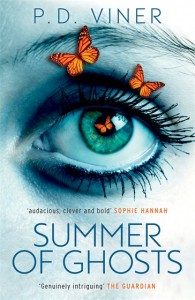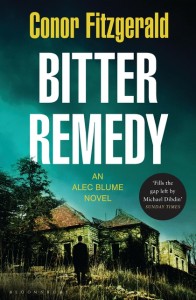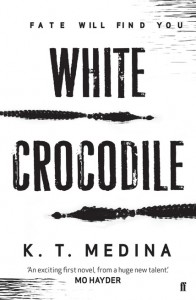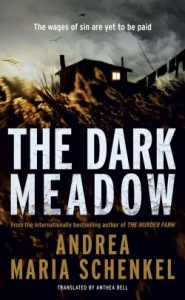 Summer of Ghosts by P. D. Viner published by Ebury
Summer of Ghosts by P. D. Viner published by Ebury
Bitter Remedy by Conor Fitzgerald published by Bloomsbury
White Crocodile by K. T. Medina published by Faber
The Dark Meadow by Andrea Maria Schenkel published by Quercus
The sleuths of Golden Age crime fiction tended to be superhuman. They were heroes, making up for the bumbling of the police if they were amateurs or preternaturally brilliant and aristocratic if they worked for Scotland Yard. They were undoubtedly good, and the killers they hunted were wholly bad. Now writers are taking pleasure in creating credibly fallible cops, who bumble and stumble their way to the truth, arousing our compassion as much as our awe.
P. D. Viner’s Detective Superintendent Tom Bevans has tragedy in his past, a lot on his conscience, and too much empathy for victims and their families. As his DI, Jane Thorsen, thinks, ‘It isn’t good to wallow – it isn’t healthy to get attached to the dead. She wishes Tom Bevans knew that.’ But he has an impressive record of successful investigations, and his skills are needed to identify a serial killer who is attacking schoolgirls with extreme brutality.
Although my heart sank at this aspect of the novel, I need not have worried. Viner’s plot is far more wide-ranging than most serial-killer thrillers, and he has created some excellent characters, both among the good and the bad. He also has important points to make about fathers and daughters, and the uses to which the proceeds of crime are put. There is more graphically described violence than I enjoy, but I wanted to know what was going to happen enough to keep reading through it, and I admire Viner’s nice way with words. Tom Bevans, for example, enters a crime scene, ‘moving slowly, as if he does not want to disturb the air as he passes through it.’
Conor Fitzgerald’s investigator, Commisioner Alec Blume of the squadra mobile in Rome, has both physical and emotional weaknesses. He has been sent on an extended period of sick leave to avert a threatened nervous breakdown. A hypochondriac and pill-popper of the worst sort, he is also highly intelligent and a most attractive character. For some reason he has enrolled on a Bach Flower course taking place in the more or less derelict Villa Romanelli in central Italy and this bizarre choice lands him in the middle of crimes ancient and modern. With heat beating down on him, his prescription drugs mixing with flower remedies to fog his brain and threaten his already dodgy health, he takes on all comers, fighting the exhausted and corrupt bureaucracy as well as the local thugs. Beautifully written, full of wit and mischief, this is an entrancing novel, with enough accurately rendered darkness to give it the necessary edge. Never having read Fitzgerald, I’m delighted to find that there are four earlier titles in the series.
K. T. Medina’s White Crocodile is an impressive first novel. Set in Cambodia, it is a convincing account of a humanitarian mine-clearing team, faced with dangerous interference from outside. Tess Hardy has just joined the team after the end of her service in the Royal Engineers and her violent marriage to Luke. As she struggles to get to grips with the other mine-clearers, local Cambodian customs and superstitions about the white crocodile that presages death, she learns a great deal about the lines that divide good from bad and the links between them. As so often, the solution to the mystery she uncovers isn’t quite as powerful as the background and the characters, but Medina’s voice is an excellent addition to the genre, her research is admirable, and she knows all about narrative tension.
 Andrea Maria Schenkel specializes in casual but devastating violence perpetrated in small rural societies of great poverty. The Dark Meadow, which is set partly in 1947 and partly decades later, concerns the difficulty of achieving justice in the face of prejudice and ignorance. At the end of the Second World War, Afra came home to her parent’s mud-floored cottage, pregnant with an enemy’s child. Adding two more mouths to the family makes her parents’ hard life even more miserable. When she’s found murdered, her father is the obvious suspect. Full of the horrors visited on both men and women in a patriarchal society in which bullying is endemic, this short novel carries tremendous emotional power.
Andrea Maria Schenkel specializes in casual but devastating violence perpetrated in small rural societies of great poverty. The Dark Meadow, which is set partly in 1947 and partly decades later, concerns the difficulty of achieving justice in the face of prejudice and ignorance. At the end of the Second World War, Afra came home to her parent’s mud-floored cottage, pregnant with an enemy’s child. Adding two more mouths to the family makes her parents’ hard life even more miserable. When she’s found murdered, her father is the obvious suspect. Full of the horrors visited on both men and women in a patriarchal society in which bullying is endemic, this short novel carries tremendous emotional power.
